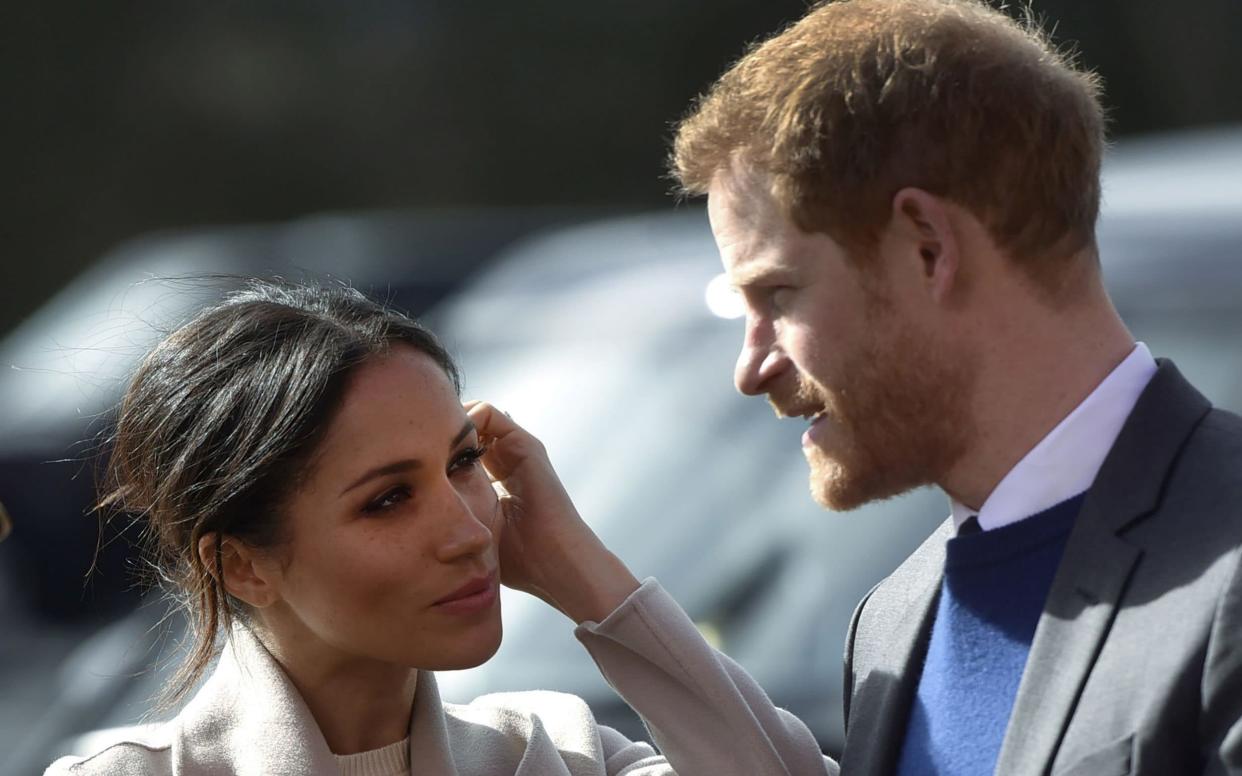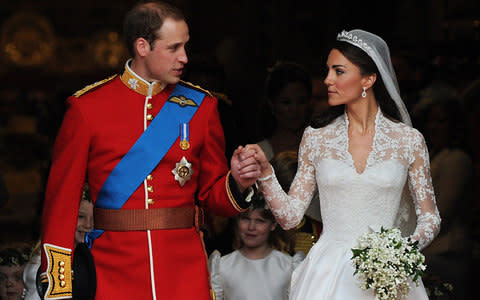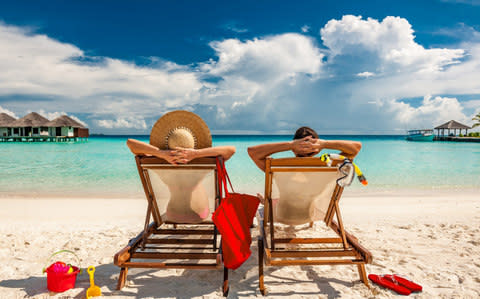Death of the honeymoon? How newlyweds are revolutionising the post-wedding getaway

In Ian McEwan’s 2007 novella On Chesil Beach, he writes that, following the wedding of his two protagonists: “The couple had driven away in a small car belonging to Florence’s mother and arrived in the early evening at their hotel on the Dorset coast…”
The year is 1962, a time when driving off from one’s reception and beginning a honeymoon immediately was not unusual. Today, it has become something of a rarity. Last week, we learned that Prince Harry and Meghan Markle will delay their honeymoon and, instead of jetting off to warmer climes for some precious time à deux, will go straight back to work in the week after their wedding.
Their first public engagement as a married couple will take place just days after their May 19 nuptials, with a private honeymoon not due to happen until later in the year. Their wedding night will be spent at Windsor Castle, before they head back to Kensington Palace as newlyweds.
In postponing their honeymoon, they follow in the footsteps of the Duke and Duchess of Cambridge, who enjoyed a short “mini-moon” in their new home of Anglesey after their 2011 wedding, before escaping to the Seychelles months later.
Both couples, it seems, are in keeping with the times. Gone are the days when bride and groom would leave their wedding reception early and drive off into the sunset, tin cans rattling from their rear bumper. The very idea of walking out on a party that’s been many months in the planning, with a cost roughly equal to the GDP of a small country, seems unthinkable, in fact. And for a whole variety of reasons, it’s a tradition that is dying a slow, painless death.

“Weddings have become much bigger occasions, so people are more and more exhausted afterwards,” says Hamish Shephard, founder of wedding planning app Bridebook. “They want time to relax, not to go off and climb a mountain.”
Not that climbing mountains has been jettisoned altogether. Rather, newlyweds are increasingly opting to put back their big adventure until some time in the near future. In the meantime, they might treat themselves, like William and Kate, to a mini-moon - a smaller trip to keep them going before the no-expense-spared, trip of a lifetime to the Seychelles or Saint Lucia.
Though we are never knowingly ahead of the curve, my husband and I did something similar when we tied the knot in 2014. After marrying in Harrogate, we spent the next day and night at my parents’ house in Leeds to decompress, then drove off for one night in a country house hotel outside Lincoln, on our way back to London, where we live - part-mini-moon, part pitstop, I suppose. It was almost two months later that we flew to the US for a 12-day road trip that served as the real honeymoon.
Our reasons for postponing? We wanted some time to look forward to it, for one thing; and planning a wedding was enough trouble, frankly, without planning a complicated route across four southern states at the same time.
Apparently, this logic is quite typical. Shephard, whose own honeymoon to South Africa took place some 18 months after his wedding - a period broken up by a five-day mini-moon in Santorini - says the trend for marrying later has something to do with it. According to ONS figures, the average age of marriage in 2014 was 33 years and six months for men, and 31 years and three months for women. Which changes the equations somewhat.
“The sanctity of the wedding night has changed a bit over a few generations,” says Shephard.

“Before, the first night of the honeymoon was a couple’s first night together, and the trip was their first chance to spend some extended time together. Now, most couples have lived together for an average of 3.7 years before getting married.”
In other words, there’s no rush. Chances are we’re not waiting for the honeymoon before we lose our virginity or finally get to know our other half. We are also more used to travelling, moreover, and with the boom in gap years and decreased cost of flying, many of us have done a fair bit of it before marriage even dawns on the horizon.
“Back in the day, going on safari after your wedding was your first big adventurous holiday, whereas now people are getting married older and have done quite a few adventures already so they’re happy to do just a small trip to relax straight after the wedding,” says Shephard. “You want to be around the day after to see you friends and talk about it.”
Sarah Pitman, 38, from south London, postponed her honeymoon on the advice of friends.
“They said, ‘do it later, when you’ve recovered, because you’ll be exhausted after the wedding and you’ll enjoy it more if you wait,’” she says.
Heeding their advice, she and her husband spent a relaxing few days on a Scottish island after their 2014 wedding in Eastbourne, then around two months later flew off to Malaysia for their full-blown, two-and-a-half-week honeymoon - “the most expensive holiday we’ll probably ever have.”
And herein lies another reason for delaying the real thing. “Weddings are incredibly expensive so people can’t afford to go straight off on a big trip,” says Shephard. “In the past, the groom often planned it as a surprise and his parents paid for it. Now, you have a honeymoon fund.”

That is, instead of asking guests to buy gifts from a wedding list, couples frequently request contributions to their trip - the catch being that they must wait until they’re married before the money is available.
Time may also be in short supply. While Harry and Meghan have an official engagement to attend shortly after their wedding, the rest of us tend to have calendars packed with other people’s weddings in the weeks that follow our own, thanks to the fact that the vast majority of weddings take place in the summer. Four other couples from the same group of our friends got married in the weeks around our wedding, which seemed like a lot at the time but pales in comparison to the 13 weddings Shephard attended the year he tied the knot.
Emily Brazee, 30, from Chicago, married her British husband in Cape Cod last April but postponed her honeymoon until this autumn, partly because her sister got married around two months after she did, and the cost of flying back to the US from the UK again left them with little spare cash. “I feel a bit silly calling it my honeymoon because it’s so long after the fact,” she says. “But in hindsight it’s worked out really well because now we get to have a big 15-day trip to Milan and Croatia in September, which we’ve had lots of time to save up for.”
So while the old-fashioned, straight-after-the-wedding- style honeymoon may be vanishing into the past, the concept is not dead and gone; rather, reconceived and reborn for a new era.
As with most other aspects of a wedding, there’s no longer just one fixed way to do things. Couples are tailoring their celebrations to what suits them best, and as thoroughly modern young Royals, Harry and Meghan will do likewise.

